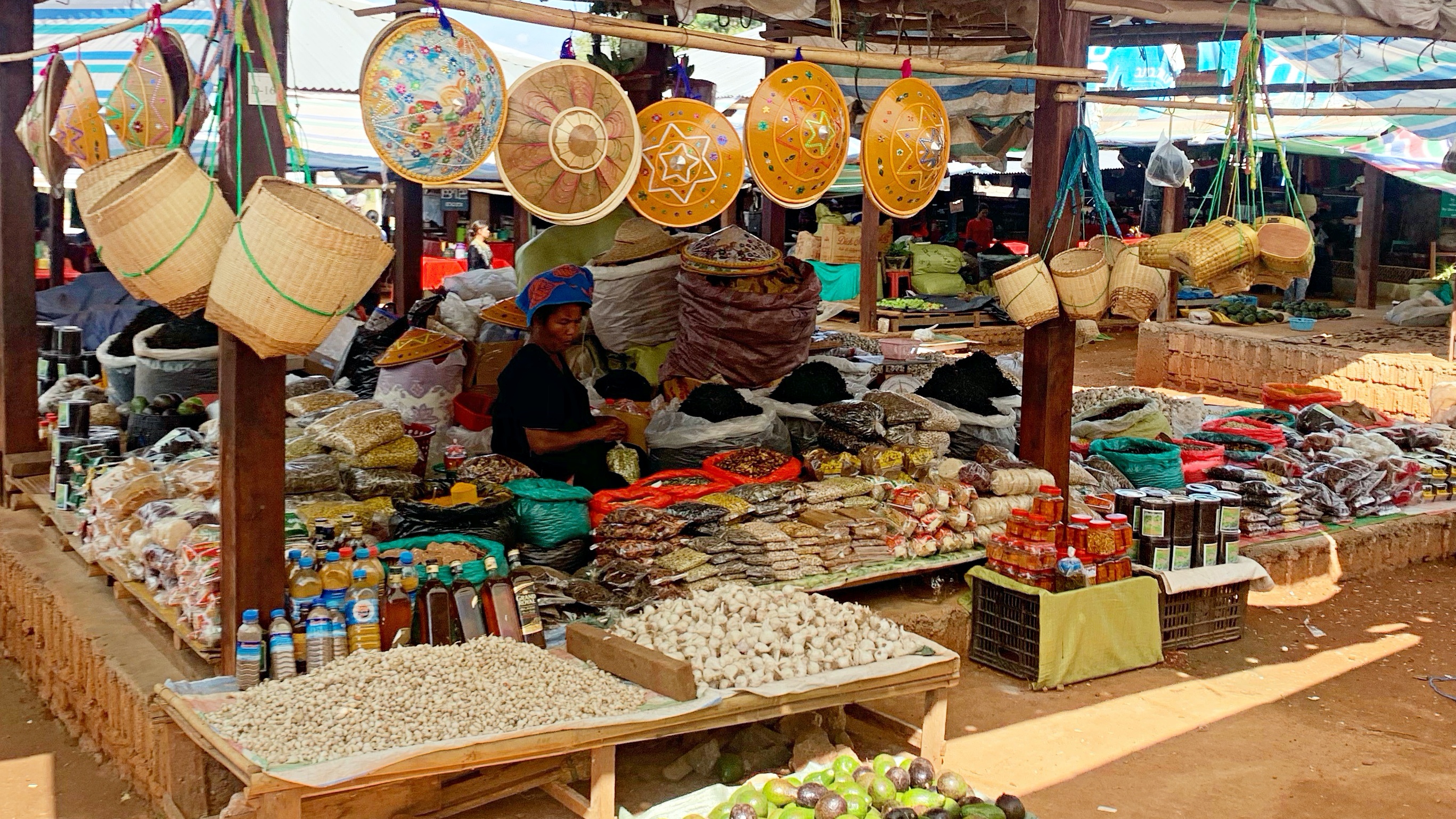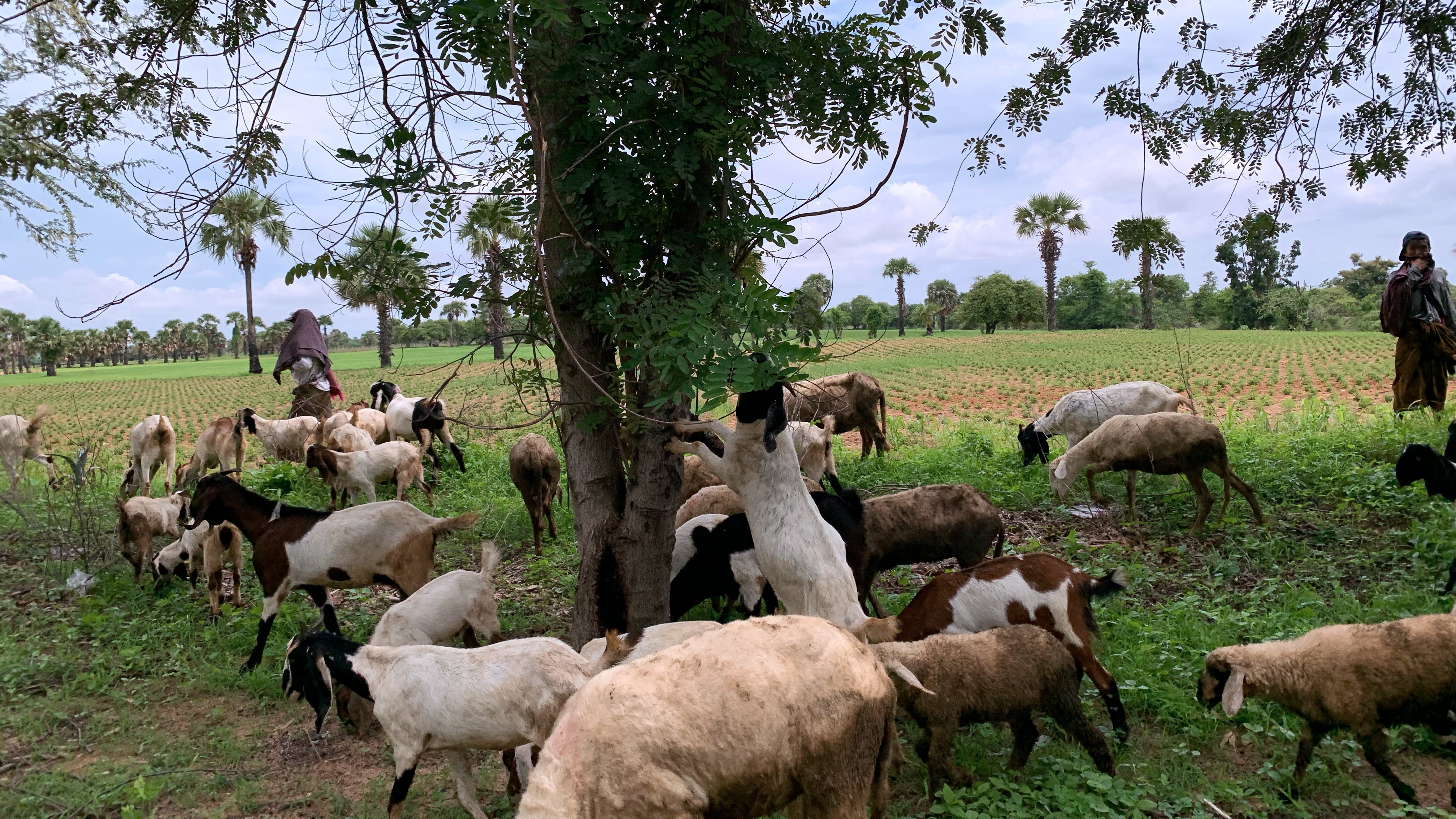|
|
Also in this newsletter: How to Improve Myanmar’s Covid-19 Emergency Relief Program and Myanmar CSOs push for urgent measures during the COVID-19 pandemic.
|
‘Never Let a Good Crisis Go to Waste’ The Covid-19 pandemic and the opportunity for food sovereignty |
 Photo credit: Doi Ra (TNI) Photo credit: Doi Ra (TNI)
The Covid-19 pandemic has provoked widespread discussion of what kind of future the world should look forward to after the crisis. One of the areas of economic life around which there is spirited debate is the global food system. This paper by Walden Bello focuses on how the pandemic has exposed the fragility of the corporate-dominated global food supply system and shown that it is not, as the Food and Agriculture Organization and its allied agencies see it, part of the solution.
The study recommends that while in the short term, it would be important to prevent disruptions of global trade so as not to create hunger and widespread malnourishment, it is important to begin the strategic transformation of the global food production system along lines designed to bring about food self-sufficiency and food sovereignty. Moreover, it urges that this process of transformation be articulated with other progressive alternatives that seek to go beyond the inequality, conflicts, uneven development, and ecological destabilization engendered by global capitalism.
|
|
|
|
| |
|
|
| |
|
| |
| How to Improve Myanmar’s Covid-19 Emergency Relief Program |
The Covid-19 Economic Relief Plan (CERP) that the government rolled out in the last week of April is a welcome initiative for a country that is suffering from both the assault of the novel coronavirus and the massive economic impact of the nationwide lockdown that the government has imposed to stop its spread.
 Photo credit: Doi Ra (TNI) Photo credit: Doi Ra (TNI)
More than 50 measures were laid out in the 15-page document. But the plan is more of a wishful shopping-list, with only two items being assigned specific amounts: up to K500 billion (US$360 million) in loans for small- and medium-sized businesses in selected sectors; and K100 billion ($72 million) for trade financing. There are also a number of important measures for containing the novel coronavirus that are missing.
|
|
|
|
| |
|
|
| |
|
| |
| Myanmar CSOs push for urgent measures during the COVID-19 pandemic |
Myanmar Civil Society organizations and networks urge the Myanmar government and other relevant stakeholders to take urgent measures during the COVID-19 pandemic.
Myanmar is being affected by the COVID-19 global pandemic in many aspects – health wise, politically, economically and socially. The impact of the pandemic may be prolonged. In this regards, some Myanmar civil society organizations (CSOs) and networks convened online meetings on 29 April and 19 May 2020 to discuss ways to strategically respond to the pandemic. Based on these meetings, Myanmar CSOs plan to issue a manifesto on how to strategically coordinate and respond during the pandemic. While the manifesto is being prepared, which may take some time, there are some matters that require immediate actions.
Urgent recommendations and request:
1. Unconditionally stop armed conflict in all areas across Myanmar.
2. The Myanmar government should urgently support and provide humanitarian assistance to internally displaced persons (IDPs) and recent conflict affected population, especially in northern Rakhine and southern Chin States, and COVID-19 related response. Unconditionally remove all restrictions preventing CSOs from providing emergency assistance and humanitarian access must be granted.
3. Myanmar government, the military (Tatmadaw), and ethnic armed organisations (EAOs) should protect civilians in armed conflict affected areas and respect and fulfil international humanitarian law and international human rights law.
4. The government should buy goods with low shelf-lives from farmers and distribute them to people in need.
5. Agricultural loans repayment exemption from the government for farmers from armed conflict affected areas and suspend repayment of loans for farmers from other areas.
6. Unconditionally suspend land registration and land confiscation under the Vacant, Fallow, and Virgin (VFV) Land Management Law and the planning and implementation of business investments using Myanmar’s natural resources such as water, land and ecosystem during the COVID-19 pandemic when there are limitations on monitoring due to restrictions on people gatherings.
7. Temporarily suspend mineral mining, issuing licenses for mining, exploration, dam construction projects, hydropower projects and energy related projects that are detrimental to the environment and local communities since the public cannot gather to respond during the pandemic.
8. Immediately lift internet restrictions, which have been imposed supposedly due to armed conflict in Rakhine and Chin states and security reasons, limiting the public’s ability to access information, unblock ethnic websites and allow the media to freely access information and report. Media workers should not be charged under criminal laws or other repressive laws.
9. Provide unconditional food, money, and essential items support within a month to people are really poor and in dire need. Conduct a Rapid Needs Assessment to be able to provide such assistance. Government departments and CSOs should cooperate for the assessment.
10. Decisions on reopening schools should be based on the views of students, teachers, and parents and the situation of COVID-19 prevention efforts.
11. Collect data of migrant workers who have returned to Myanmar, unemployed factory worker and laid-off workers and provide them with the necessary support.
12. Provide protective equipment and materials for health workers and ensure plans to relieve their workload.
13. COVID-19 response planning and policy development should be based on human rights, democracy, and social justice principle and norm. Must ensure, Women and disable person participation and their concern and needs must be address on those policy making, planning and implementation.
More than 50 measures were laid out in the 15-page document. But the plan is more of a wishful shopping-list, with only two items being assigned specific amounts: up to K500 billion (US$360 million) in loans for small- and medium-sized businesses in selected sectors; and K100 billion ($72 million) for trade financing. There are also a number of important measures for containing the novel coronavirus that are missing.
|
|
|
|
| |
|
|
| |
|
|
|